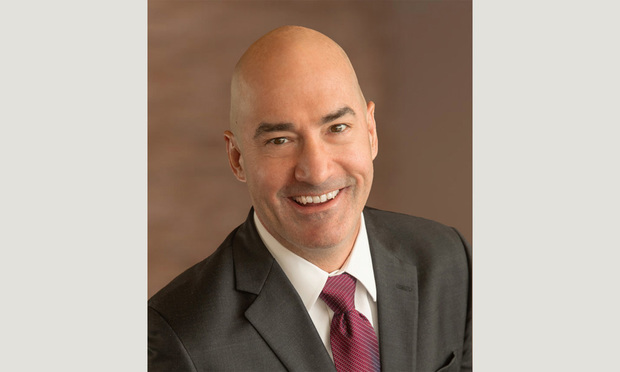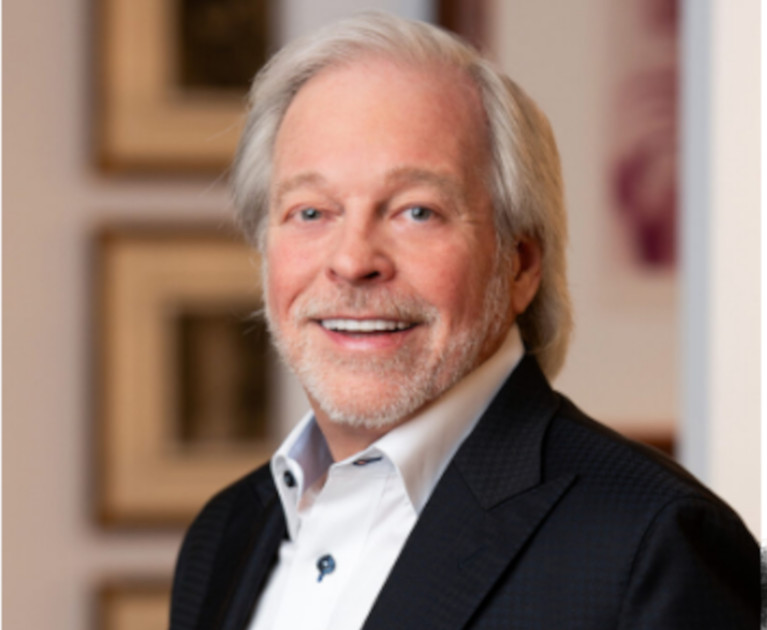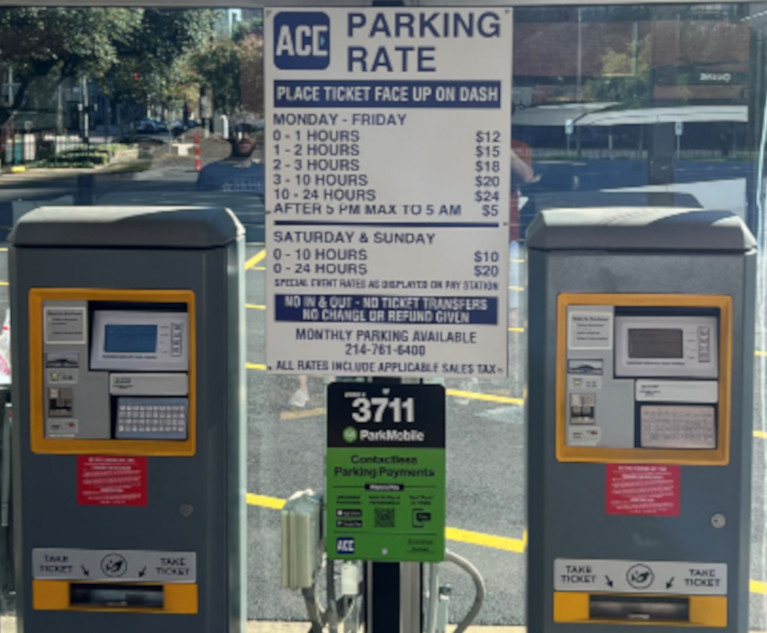Screeching Halt: Lyft and Uber Putting Profits Over Safety Of Passengers
A class-action lawsuit is pending against Lyft in California alleging the company failed to prevent its drivers from assaulting "several thousand"…
July 30, 2020 at 05:11 PM
6 minute read
 Quentin Brogdon is a personal injury trial lawyer in Dallas, Texas. (Courtesy Photo)
Quentin Brogdon is a personal injury trial lawyer in Dallas, Texas. (Courtesy Photo)
A class-action lawsuit is pending against Lyft in California alleging the company failed to prevent its drivers from assaulting "several thousand" female customers. The Lyft lawsuit alleges that Lyft has not adopted basic driver monitoring procedures that would protect the safety of its passengers and drivers. According to the lawsuit, Lyft has hidden the true nature of sexual assaults occurring in its vehicles and Lyft continues to let sexual predators drive even after Lyft receives reports of sexual assaults by predatory drivers. The plaintiffs in the lawsuit claim that there are no background checks or biometric fingerprinting for prospective Lyft drivers, and that almost all applicants ultimately become drivers for Lyft.
These allegations against Lyft are not surprising to lawyers who have handled sexual assault claims against Lyft and Uber. Lyft has worked hard to position itself in the public eye as a safer version of Uber, but the companies really are two peas in a pod when it comes to the screening of their drivers and the safety of their passengers.
We grew up hearing that it is not safe to hitchhike with strangers, but that is exactly what we do when we get into an Uber or a Lyft. There is no more dangerous place to be than in a moving car with a stranger. Driving for Uber or Lyft is a sexual predator's dream job. The job ensures close proximity to a steady supply of captive, vulnerable, sometimes intoxicated victims. Intoxicated riders are the norm, not the exception because both companies market their services as safer alternatives than self-driving for intoxicated riders.
All of us want to believe that getting into an Uber or a Lyft vehicle is no different than getting into a taxicab, but that is just not true. Cities regulate taxicabs, and cities almost always require taxicab drivers' criminal histories to be checked using finger-printing. Finger-printing is the gold standard because finger-printing cannot be readily faked in the same way that dates of birth and other identity information can be faked. Uber and Lyft have worked very hard to get Texas and almost all states to pass state laws that flatly prohibit cities from regulating Uber and Lyft. These state laws prevent cities from imposing any requirements other than the basic, minimal standards already in the Uber and Lyft-drafted bills. Cities in Texas and in most states cannot require finger-printing of Uber and Lyft drivers because finger-printing is nowhere in the Uber and Lyft-drafted state laws. The sad, predictable result is that violent sexual predators end up in locked vehicles with vulnerable, sometimes-intoxicated passengers.
Failing to finger-print prospective drivers is just one of the ways that Uber and Lyft fail to protect their passengers from crimes at the hands of the companies' drivers. The installation of dashboard cameras and better monitoring of times and whereabouts of drivers and rides by the companies no doubt also would prevent at least some sexual assaults.
We do not have insider information on how Lyft handles reports of sexual misconduct by Lyft drivers, but we have this information for Uber. For instance, Uber employees reportedly have been forbidden from contacting the police and advising victims to pursue legal advice. Uber reportedly has a "three-strike" policy that allows their drivers to continue driving after reports of misconduct. Even when Uber blocks a driver, it reportedly does not share its decision with the police, background check companies, or Lyft. We can only assume that Lyft has similar policies.
To Uber's credit, it belatedly issued an 84-page report in December of 2019 detailing statistics of reported sexual assaults by Uber drivers. Lyft has yet to veil of secrecy surrounding reports of sexual assaults by Lyft drivers, in spite of repeated promises to do so. Critics maintained that Uber's release of the report was motivated much less by a genuine desire to educate the public than by an attempt to rebuilt trust in the company. The public's trust justifiably was lost as a result of consistent reported violent crimes at the hands of Uber and Lyft drivers.
The conduct documented in the Uber report is concerning, to say the least. We can only assume that Lyft's statistics are similar. For 2018, the Uber report documented 1,560 reports of nonconsensual touching of a body part, 594 reports of nonconsensual kissing of a nonsexual body part, 376 reports of nonconsensual kissing of a sexual body part, 280 reports of attempted nonconsensual sexual penetration, and 235 reports of nonconsensual sexual penetration. Uber attempted to minimize these disturbing reports by highlighting that these incidents occurred in just a very small fraction of Uber rides. That would provide scant comfort to you if you or a family member were the victim of a preventable, traumatic sexual assault at the hands of an Uber or Lyft driver with a previous violent criminal record.
Uber and Lyft consistently seek to avoid all regulation and all accountability. The companies literally wrote the law that "regulates" the companies in Texas and in most other states. When an Uber driver or a Lyft driver sexually assaults a passenger, the companies argue that the driver is an independent contractor and that the company has no responsibility, even in cases in which the driver has a previous violent criminal record. The only way these companies will start taking basic, common-sense steps to screen their drivers is for jurors tell them with their verdicts that putting profits over safety is unacceptable and there will be harsh consequences at the courthouse.
Quentin Brogdon is a partner in Crain Brogdon Rogers, in Dallas. He is a member of the American Board of Trial Advocates, a Fellow of the International Academy of Trial Lawyers, a Fellow of the American College of Trial Lawyers and a Fellow of the International Society of Barristers.
This content has been archived. It is available through our partners, LexisNexis® and Bloomberg Law.
To view this content, please continue to their sites.
Not a Lexis Subscriber?
Subscribe Now
Not a Bloomberg Law Subscriber?
Subscribe Now
NOT FOR REPRINT
© 2025 ALM Global, LLC, All Rights Reserved. Request academic re-use from www.copyright.com. All other uses, submit a request to [email protected]. For more information visit Asset & Logo Licensing.
You Might Like
View All

Rogge Dunn Represents Florida Trucking Firm in Civil RICO Suit Against Worldwide Express
4 minute read
Trending Stories
- 1No Two Wildfires Alike: Lawyers Take Different Legal Strategies in California
- 2Poop-Themed Dog Toy OK as Parody, but Still Tarnished Jack Daniel’s Brand, Court Says
- 3Meet the New President of NY's Association of Trial Court Jurists
- 4Lawyers' Phones Are Ringing: What Should Employers Do If ICE Raids Their Business?
- 5Freshfields Hires Ex-SEC Corporate Finance Director in Silicon Valley
Who Got The Work
J. Brugh Lower of Gibbons has entered an appearance for industrial equipment supplier Devco Corporation in a pending trademark infringement lawsuit. The suit, accusing the defendant of selling knock-off Graco products, was filed Dec. 18 in New Jersey District Court by Rivkin Radler on behalf of Graco Inc. and Graco Minnesota. The case, assigned to U.S. District Judge Zahid N. Quraishi, is 3:24-cv-11294, Graco Inc. et al v. Devco Corporation.
Who Got The Work
Rebecca Maller-Stein and Kent A. Yalowitz of Arnold & Porter Kaye Scholer have entered their appearances for Hanaco Venture Capital and its executives, Lior Prosor and David Frankel, in a pending securities lawsuit. The action, filed on Dec. 24 in New York Southern District Court by Zell, Aron & Co. on behalf of Goldeneye Advisors, accuses the defendants of negligently and fraudulently managing the plaintiff's $1 million investment. The case, assigned to U.S. District Judge Vernon S. Broderick, is 1:24-cv-09918, Goldeneye Advisors, LLC v. Hanaco Venture Capital, Ltd. et al.
Who Got The Work
Attorneys from A&O Shearman has stepped in as defense counsel for Toronto-Dominion Bank and other defendants in a pending securities class action. The suit, filed Dec. 11 in New York Southern District Court by Bleichmar Fonti & Auld, accuses the defendants of concealing the bank's 'pervasive' deficiencies in regards to its compliance with the Bank Secrecy Act and the quality of its anti-money laundering controls. The case, assigned to U.S. District Judge Arun Subramanian, is 1:24-cv-09445, Gonzalez v. The Toronto-Dominion Bank et al.
Who Got The Work
Crown Castle International, a Pennsylvania company providing shared communications infrastructure, has turned to Luke D. Wolf of Gordon Rees Scully Mansukhani to fend off a pending breach-of-contract lawsuit. The court action, filed Nov. 25 in Michigan Eastern District Court by Hooper Hathaway PC on behalf of The Town Residences LLC, accuses Crown Castle of failing to transfer approximately $30,000 in utility payments from T-Mobile in breach of a roof-top lease and assignment agreement. The case, assigned to U.S. District Judge Susan K. Declercq, is 2:24-cv-13131, The Town Residences LLC v. T-Mobile US, Inc. et al.
Who Got The Work
Wilfred P. Coronato and Daniel M. Schwartz of McCarter & English have stepped in as defense counsel to Electrolux Home Products Inc. in a pending product liability lawsuit. The court action, filed Nov. 26 in New York Eastern District Court by Poulos Lopiccolo PC and Nagel Rice LLP on behalf of David Stern, alleges that the defendant's refrigerators’ drawers and shelving repeatedly break and fall apart within months after purchase. The case, assigned to U.S. District Judge Joan M. Azrack, is 2:24-cv-08204, Stern v. Electrolux Home Products, Inc.
Featured Firms
Law Offices of Gary Martin Hays & Associates, P.C.
(470) 294-1674
Law Offices of Mark E. Salomone
(857) 444-6468
Smith & Hassler
(713) 739-1250







